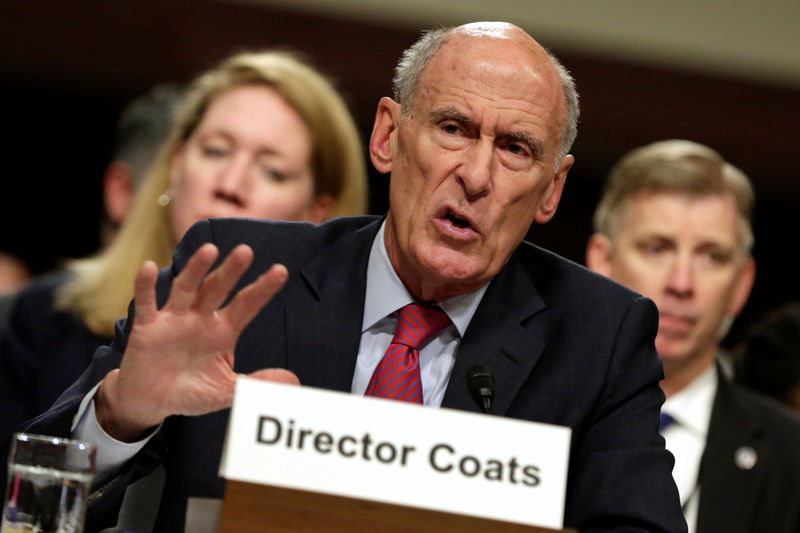By Dustin Volz
WASHINGTON (Reuters) - Top U.S. intelligence officials will testify before a Senate panel next week on the law governing the collection of foreign intelligence, parts of which are due to expire at the end of the year, the Senate Intelligence Committee said on Friday.
Director of National Intelligence Dan Coats, Acting FBI Director Andrew McCabe, National Security Agency Director Mike Rogers and Deputy U.S. Attorney General Rod Rosenstein will appear before the committee in both open public and closed-door hearings on Wednesday to discuss the Foreign Intelligence Surveillance Act, or FISA, the committee said in a statement.
The next day, former FBI Director James Comey, who was fired by President Donald Trump last month, is scheduled to testify before the same committee.
Comey had been overseeing an FBI investigation into Russian interference during the 2016 presidential election and possible collusion between Moscow and Trump associates, and the Senate panel is conducting a parallel probe.
A part of FISA known as Section 702 will expire on Dec. 31 unless Congress votes to reauthorize it. The statute allows the NSA to collect digital communications of foreigners believed to be living overseas whose communications pass through American phone or internet providers.
For technical reasons, it also incidentally collects data on Americans, a practice that privacy advocates have said evades Constitutional protections against warrantless searches.
FISA and U.S. surveillance practices have come under increased scrutiny in recent months amid unsubstantiated assertions by President Donald Trump and other Republicans that the White House under former President Barack Obama improperly spied on Trump or his associates.
A bipartisan coalition of lawmakers in the House of Representatives is working on legislation that would renew Section 702 but with additional transparency and oversight, among other changes, though it remains unclear if it would have enough support to pass Congress and be signed by Trump.

A White House official told Reuters in March the administration supported the law's renewal and did not want to alter it.
